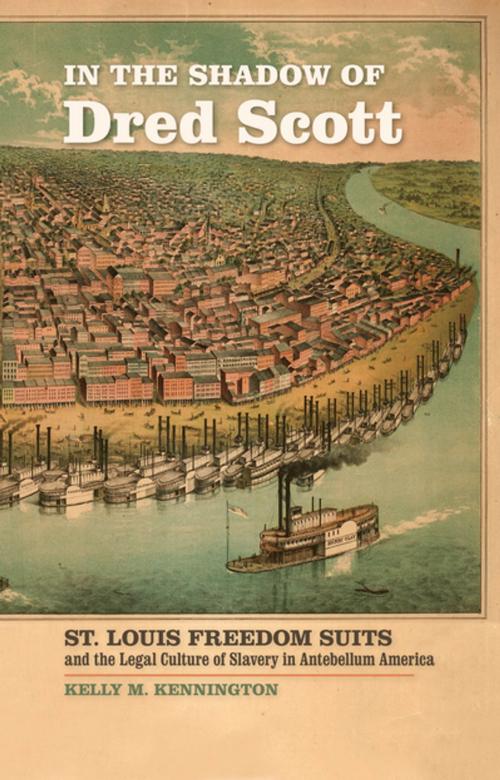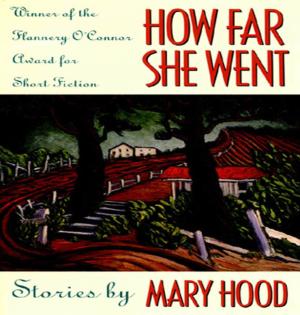In the Shadow of Dred Scott
St. Louis Freedom Suits and the Legal Culture of Slavery in Antebellum America
Nonfiction, Reference & Language, Law, Civil Rights, Social & Cultural Studies, Social Science, Discrimination & Race Relations, History, Americas, United States, 19th Century| Author: | Kelly M. Kennington | ISBN: | 9780820350851 |
| Publisher: | University of Georgia Press | Publication: | April 15, 2017 |
| Imprint: | University of Georgia Press | Language: | English |
| Author: | Kelly M. Kennington |
| ISBN: | 9780820350851 |
| Publisher: | University of Georgia Press |
| Publication: | April 15, 2017 |
| Imprint: | University of Georgia Press |
| Language: | English |
The Dred Scott suit for freedom, argues Kelly M. Kennington, was merely the most famous example of a phenomenon that was more widespread in antebellum American jurisprudence than is generally recognized. The author draws on the case files of more than three hundred enslaved individuals who, like Dred Scott and his family, sued for freedom in the local legal arena of St. Louis. Her findings open new perspectives on the legal culture of slavery and the negotiated processes involved in freedom suits. As a gateway to the American West, a major port on both the Mississippi and Missouri Rivers, and a focal point in the rancorous national debate over slavery’s expansion, St. Louis was an ideal place for enslaved individuals to challenge the legal systems and, by extension, the social systems that held them in forced servitude.
Kennington offers an in-depth look at how daily interactions, webs of relationships, and arguments presented in court shaped and reshaped legal debates and public attitudes over slavery and freedom in St. Louis. Kennington also surveys more than eight hundred state supreme court freedom suits from around the United States to situate the St. Louis example in a broader context. Although white enslavers dominated the antebellum legal system in St. Louis and throughout the slaveholding states, that fact did not mean that the system ignored the concerns of the subordinated groups who made up the bulk of the American population. By looking at a particular example of one group’s encounters with the law—and placing these suits into conversation with similar encounters that arose in appellate cases nationwide—Kennington sheds light on the ways in which the law responded to the demands of a variety of actors.
The Dred Scott suit for freedom, argues Kelly M. Kennington, was merely the most famous example of a phenomenon that was more widespread in antebellum American jurisprudence than is generally recognized. The author draws on the case files of more than three hundred enslaved individuals who, like Dred Scott and his family, sued for freedom in the local legal arena of St. Louis. Her findings open new perspectives on the legal culture of slavery and the negotiated processes involved in freedom suits. As a gateway to the American West, a major port on both the Mississippi and Missouri Rivers, and a focal point in the rancorous national debate over slavery’s expansion, St. Louis was an ideal place for enslaved individuals to challenge the legal systems and, by extension, the social systems that held them in forced servitude.
Kennington offers an in-depth look at how daily interactions, webs of relationships, and arguments presented in court shaped and reshaped legal debates and public attitudes over slavery and freedom in St. Louis. Kennington also surveys more than eight hundred state supreme court freedom suits from around the United States to situate the St. Louis example in a broader context. Although white enslavers dominated the antebellum legal system in St. Louis and throughout the slaveholding states, that fact did not mean that the system ignored the concerns of the subordinated groups who made up the bulk of the American population. By looking at a particular example of one group’s encounters with the law—and placing these suits into conversation with similar encounters that arose in appellate cases nationwide—Kennington sheds light on the ways in which the law responded to the demands of a variety of actors.















